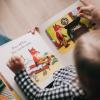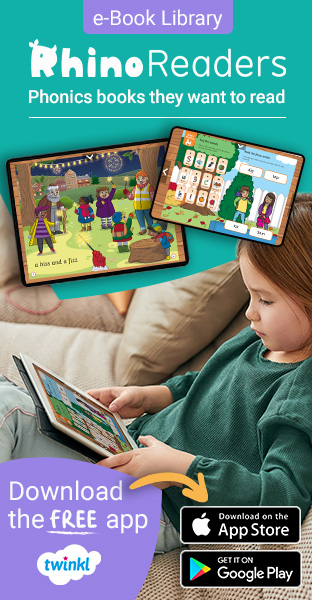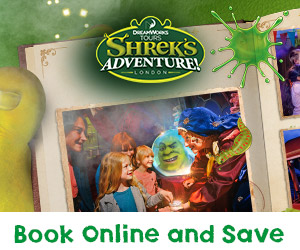
Celebrate the joys of reading for pleasure ahead of National Read a Book Day
National Read a Book Day is on Monday 6 September
Reading isn’t just for National Read a Book Day, but it’s a great opportunity to focus on the benefits of reading for pleasure, says former primary school teacher Laura Steele of education resource experts PlanBee
Although it may look passive, reading is very much an active pastime. Children can learn and develop so many different skills in addition to improved literacy through the simple act of reading, from reducing stress to developing empathetic skills. Reading for pleasure can:
● reduce stress and promote mental well-being: the world within a book is a place where children can go to escape real life for a while, relax and think about other things.
● encourage comprehension and imagination: children need to visualise the characters and settings, and predict what will happen next;
● improve concentration: children need to focus on what they are reading so that they know what is happening in the story;
● increase vocabulary: over the course of reading a book, children are likely to come across words that are unfamiliar to them. They can ask an adult, use a dictionary, or infer the meaning for themselves; either way, they are learning new words and skills;
● give children a deeper understanding of the world around them. A book can show them people, places and events that they would never otherwise experience;
● develop empathy: the ability to understand and be sensitive to the thoughts and feelings of others. Through reading about characters who are different situations and experiencing a range of emotions, children become more perceptive of how those around them might be feeling and why.
Great ideas to mark National Read a Book Day
Whether it is fiction or fact-based, a new book or an old favourite, every reading experience is a valuable one.
Pre-readers
● If a child is not yet of reading age, it doesn’t mean they can’t participate - you can read to them! As well as sharing the joy of reading a book together, it will help them to develop listening and concentration skills. Take a look at PlanBee’s 10 Storytelling Tips blog for some help and advice.
● Wordless picture books are also excellent for developing children’s storytelling skills, and helping to foster a love of books. Check out Planbee’s list of our favourite wordless books here.
Reluctant and developing readers
● Pair them up with a friend and let them share a book (they could take it in turns to pick). Encourage them to read together, and talk about what is happening in the story or their opinion about characters or events.
● Books with short chapters are great for building up a developing reader’s stamina and keeping them engaged. J. K. Rowling’s The Ickabog (originally released online at an average of two short chapters per day over 34 days, gaining a huge following) is a great example of a book with many cliff-hangers.
● Mystery is a powerful tool: describe a selection of books to children using only three words or phrases related to each story (e.g. George’s Marvellous Medicine by Roald Dahl could be ‘grandma’, ‘potion’, and ‘giant chicken’) and then let them decide which book they want to hear/read. You could also wrap the books up and write the three words on the front, then place them on the bookshelf.
● Children could be encouraged to ask a friend for a book recommendation, and then give one themselves in return. For use in the classroom, PlanBee’s Foldable Review Bookmark is a fun and quick way to note down what the book is about and leave advice for the next potential reader.
If you are a teacher, you might find PlanBee’s Easy Book Corner Ideas blog useful.
Independent readers
● Organise a book swap. The owner of each book could be encouraged to write a brief description of the story, who they think might like it and why, and attach it to the book, to help others decide which one to pick.
● Hold a ‘book tasting’ session. Set up a table with a tablecloth, plates, drinks and menus. Place a different book on each plate, and in the menu, write a brief description of each one. Children are seated, then spend five to 10 minutes reading the book on the plate in front of them before moving around the table to ‘taste’ the next one. They could have a score card and rate how interested they are in each book, or how likely they are to continue reading it afterwards.
● Start a local book club. Make it appealing by including drinks and snacks! Make sure children know that the book club is a place where they can share their opinions and ask questions about what they have read without any judgement.
Here are some reading-related Free PlanBee resources that you might find useful for National Read a Book Day and beyond.
What Makes a Good reader Poster














